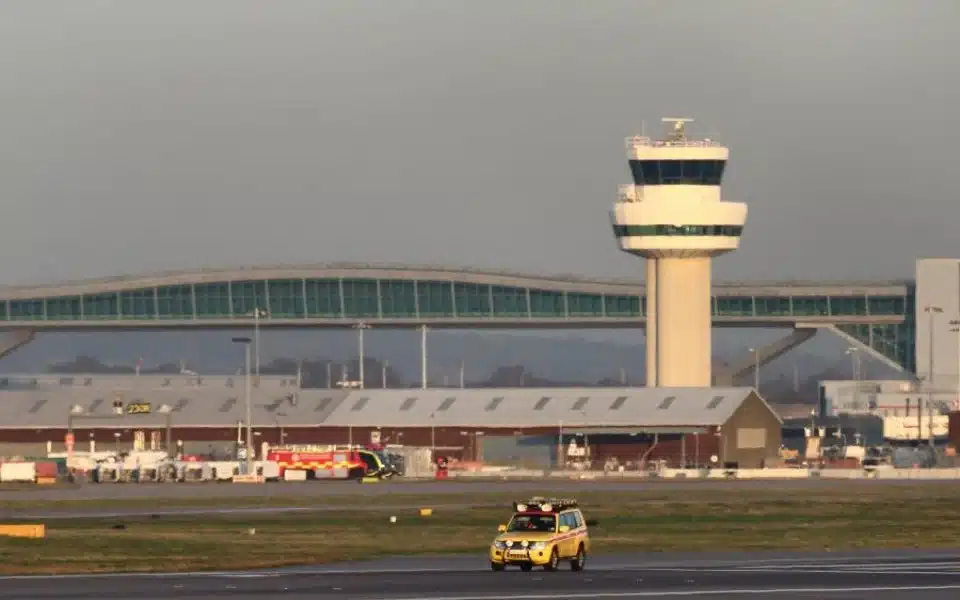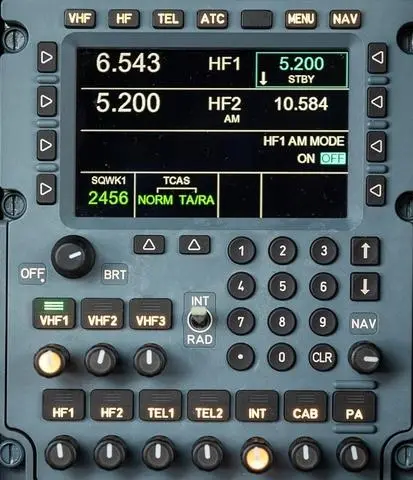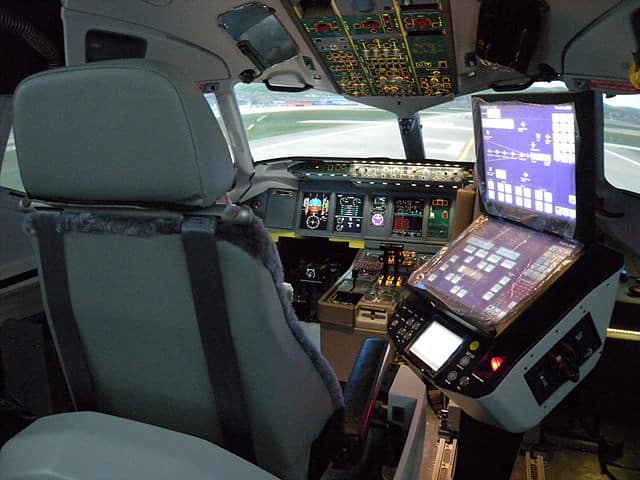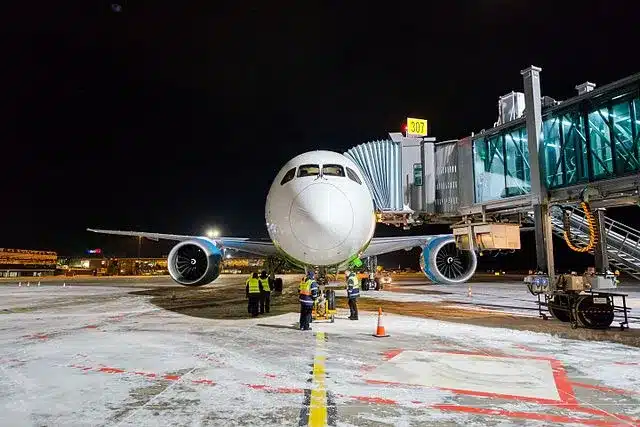Air Traffic Controllers are in high demand
You think you’ve got what it takes to be an Air Traffic Controller. And boy does it look like an exciting, challenging and rewarding career.
It is, and maybe you do have what it takes. And did you know that most States have student programs that seek those special few who really have those control skills? So, if that is indeed you, they will want you. And they will reward you by training you for free and giving you a job at your local ATC center.

But hopefully you’re asking yourself a question right now. Such as “Is there any way I could know, beforehand, if I have those skills?”
Yes, there is. And we can also tell you what the starting academic profile is and in which categories. And more importantly, we can help you execute an honest appraisal that could save you a lot of time and heartache.
The Air Traffic Controller Job
Now this is the European ATC control model. Why? Because they inform us how they complete these tasks. But we are confident that if you score highly, you shouldn’t have a problem in the US process. They seek the same skills and use similar navigation training devices to detect them in students.
And just like those lucky few super-student pilots who exhibit those natural skills, phone calls by Instructors are quickly made to Air Traffic Control training programs. Alerting them to your existence like a triple-A pitching scout or football agent when he sees “it”.
You see the theatre of the real world will funnel the naturals to the front lickety-split. Because we need them there, alongside those others who get there through persistence, practice, and money.
Controller Job Training
This one is a deep dive and there are a few links to different pages and sites that you may want to visit for further research or to test your capabilities. We urge you to do so. So, grab a headset and billion-dollar microwave radar system, or whatever you cool kids use these days, and get ready to take some notes.
There are Seven stages to the process. Here they are.
The Controller Test Basics
Academic Minimum requirements. You will be a student in the final stages of your secondary (high school) education and you’ll need excellent ENGLISH and MATHS. If the “EM” of your STEM is top notch – then you can feel confident to go ahead and fill out that application form at your natural authority’s website.
In the EU, you should be studying for your EFQ/NFQ level 5 exams and if you don’t know what these are in your country you can see the European levels here for comparison. If you hear back from them, you could be invited to validate these control skills via online testing.

What is the FEAST?
If your “EMs” are indeed good you’ve made the next stage and they want you to move forward. No time is wasted, and they invite you to the FEAST. No, not that kind of feast. The First European Air Traffic Controller Selection Test (FEAST). A battery of control tests designed to test your capabilities on the following subjects.
- English Listening and comprehension.
- Planning ability.
- Heading and range test.
- Sort task.
- Alertness in simple and multi-tasking situations test.
- Visualization test.
Aviation & The Controller
NB: These tests are all timed. So, you either have these skills and can put them into action immediately or you cannot. And we can all agree that this is a fair and valid step. Aircraft flights that are full of people battling gravity, and the environment won’t wait for you to figure stuff out.
For us, we like this. I would not like jingoism or favoritism to exist in roles in open heart surgery, or navy seal Platoon Commander or at our Air Traffic Control Facilities. I want the best of the best here. Here is more information on FEAST.
AirSpace Navigation
You’ve nailed the FEAST test. Holy moly. You’ve got it! You are the chosen one, with the right stuff. I mean, you might be an Avenger.
Well hold your hammer Thor. There’s another test. You think these people are playing games? No siree bob. Controlling aircraft equipment ain’t no game. Welcome to the Dynamic ATC Radar test (DART test).
This is a computer-based aptitude test, designed for one thing and one thing only. To test your multi-tasking control abilities. You’ll be asked to perform many tasks at the same time – as an air traffic controller would.
But using tools designed for beginners with no aviation or ATC background. So, it’s a pure form of this competency exhibition. There is scant info on the DART, so it’s best not to sweat it at this point. It’s not something you can really practice.

Air Traffic Control System
You perform brilliantly at the DART and are now in a tiny group of people on the planet that have the skills they need. But your journey is not yet over. Stage 4 has yet another control test. This time it’s Work Strengths profiling, and you can read more about that here, as well as group interviews and group exercises.
Put simply, they have tested your brain and its processing power and now they want to see the whole package and how that whole package (you) uses those other parts of your brain along with your personality so they can gauge how you might behave during the air traffic control experience.
It’s like the HPAT that tries to identify incredibly smart people and whether they would make sympathetic doctors, which will survive the grueling process of study, training, and education in those first critical years. You can read about the dart test here.
Aviation Safety Inspector
Time for the Final interview. Well done, Controllers. Your flight paths are over, and you’ve made it to the end. You will now be subjected to an in-person formal interview that will be competency-based.
Now they will check your aviation industry specific knowledge, what you have researched so far in the field of Air Traffic Control Centers and what you know about the next steps. They want to see the vocational side of you as it relates to a career as an ATC controller.
Be the Real You
What is the interviewer really looking for? They want to assure themselves (and your control employers) that you represent a great bet, should they spend time and resources job training you to the top of the air navigation mountain.
That you will repay their faith with consistent, considered controller performance. The only suggestion we make at this point is that you are doing some form of psychometric analysis of yourself. As a good student and future professional you should be doing this anyway. Self-audit is a critical part of your growth because it’s not someone else telling you what you should do. It’s you.

Air Control
Obtaining evidence that you will use to verify your choices. Sounds easy, but it’s not. What we want to do and what we should do in our life can be affected by an infinite number of things we shouldn’t get into here. But if you take anything from this article it’s these questions…
Q. Do my skills match the role?
Q. Will I enjoy developing these skills into a career?
Q. What might a career in Air Traffic Control really be like? And is that what I want?
And how to validate your abilities in that context. Lots of people want to be doctors, or pilots, or lawyers. Very few know what a day at the office is like in these roles. Don’t be that person. If you want to end up at that FAA training center in Oklahoma City, then great but think about your career as an aircraft movement. Try to navigate your own career as best you can before you try to navigate my next flight to Florida.







